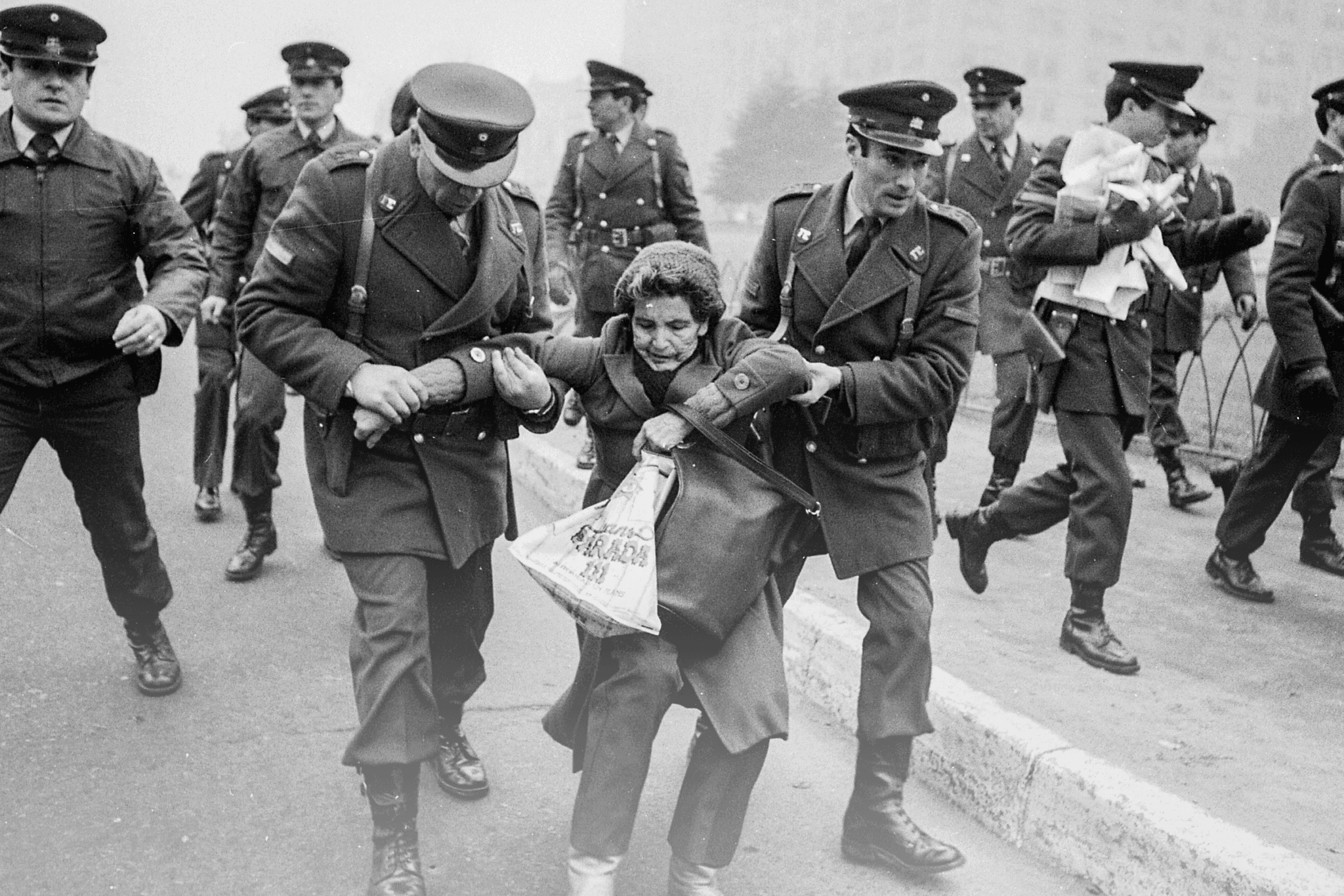SETTING
“Sometimes democracy must be bathed in blood” A. Pinochet
DESAPARECIDOS is set in 1975, two years after the military coup that brought to power the military junta led by General Augusto Pinochet.
On September 11, 1973 the army stormed and claimed the presidential palace “La Moneda”, bringing down democratically elected president Salvador Allende, and establishing a dictatorship, with the strong help of the CIA and the US government.
Congress was dissolved suspending the constitution, banning opposition, arresting trade unionists and imposing controls on the media.
Political parties were dismissed, the state was militarized and constitutional freedom of speech, of press and of assemble, were denied. The new laws were enforced by the powerful la DINA (Dirección de Inteligencia Nacional), the secret police that was in charge of suppressing any form of dissens and mostly responsible for the kidnapping of dissidents, many of which are as today still desaparecidos.
Despite the bloody repression, opposition still remained alive, even if in a clandestine form, either non violent, aimed to restore the democracy, or as an armed fight led by the MIR (Movimiento de Izquierda Revolucionaria) whose members believed that only a violent confrontation could have brought democracy back.
Meanwhile the world watched a regime suspected of hiding nazi war-criminals and tied up to fascist Italy. International observer were split between those deeply critics towards the regime and the supposed human rights violation, like the United Nations, and those states that openly or not, supported the dictatorship. A totalitarian regime was better than the alternative: the feared spreading of the marxist threat, framed in the wider picture of cold war between USA and URSS.

VILLA GRIMALDI
Villa Grimaldi was the main clandestine center of detention, torture and killing of political dissidents.
Under the control of the Dirección de Inteligencia Nacional (DINA), “Cuartel Terranova”, Terranova Barrack, as it was known between the military, held more than five thousand chileans of whom at least three hundred are still unaccounted for and desaparecidos.
The regime tried to delete and deny any proof or trace of what happened during Chile’s darkest history, but those dramatic memories are still kept alive by the surviving witnesses and the desaparecidos’ families.
It’s only thanks to the living victims that we know what happened between those walls.
The detention centers were illegal and clandestine: they didn’t exist neither for the regime, nor for the international community.
The desaparecidos never existed. Villa Grimaldi was just a private house.

SOCIETY
During the dictatorship, the chilean people lived a deep economic crisis, dramatic poverty, high unemployment and analfabetism. The most privileged classes held their status backing the regime.
Forms of dissent, protest, as well as any freedom of speech, were violently repressed.
Opposition was considered as illegal and its members criminals. Mothers, wives and daughters of supposed “lefties” were treated as political dissidents and therefore persecuted.
Altruism, generosity and acts of selflessness were kept in the shadows by diffidence, suspicion; the Junta fostered in the people fear of the “revolutionary threat” and of the dissidents. The fear of being exposed or betrayed, of facing a summary trial replaced the constitutionally guaranteed freedom of expression and the legal protections proper to a democratic state.



